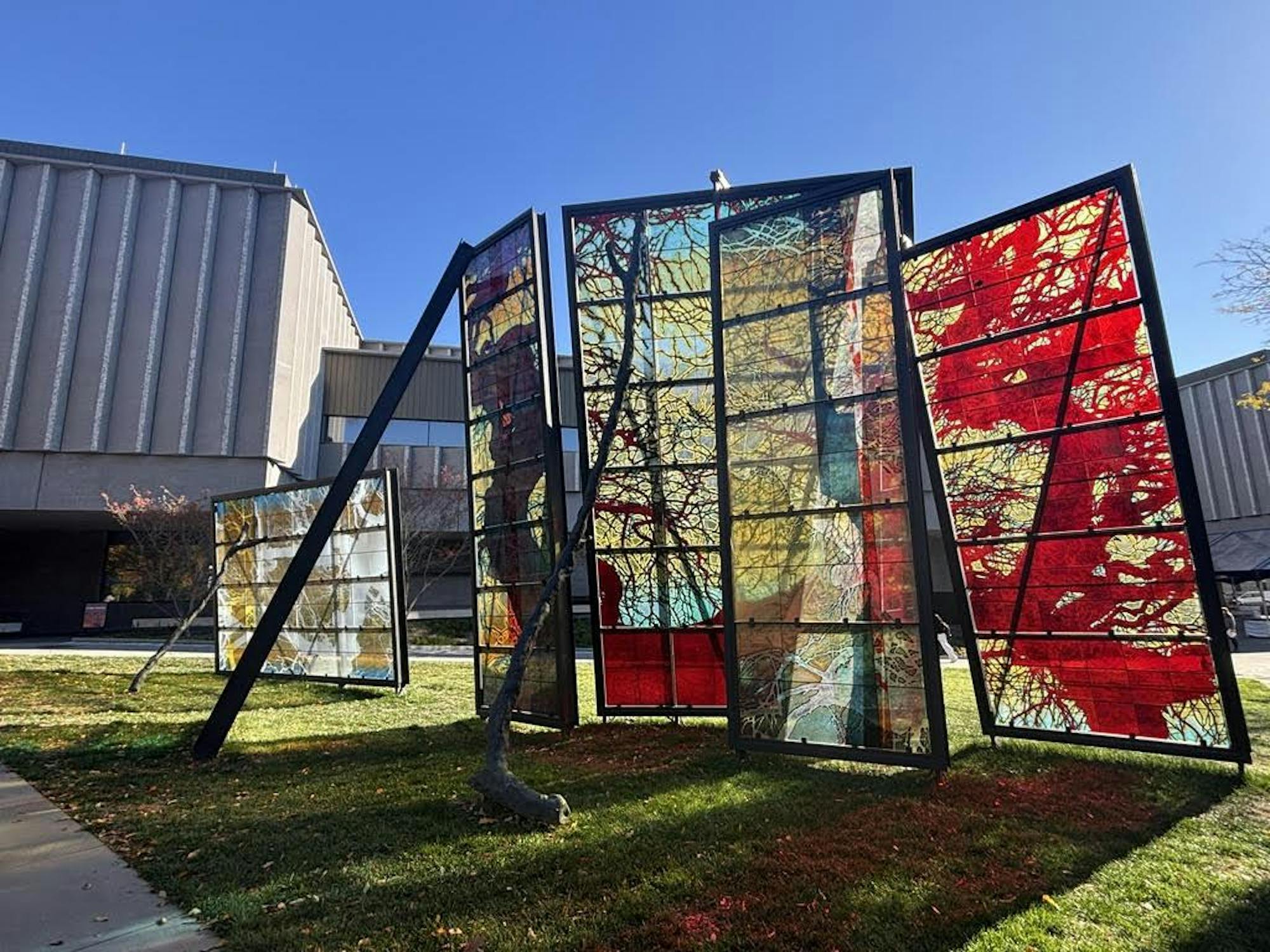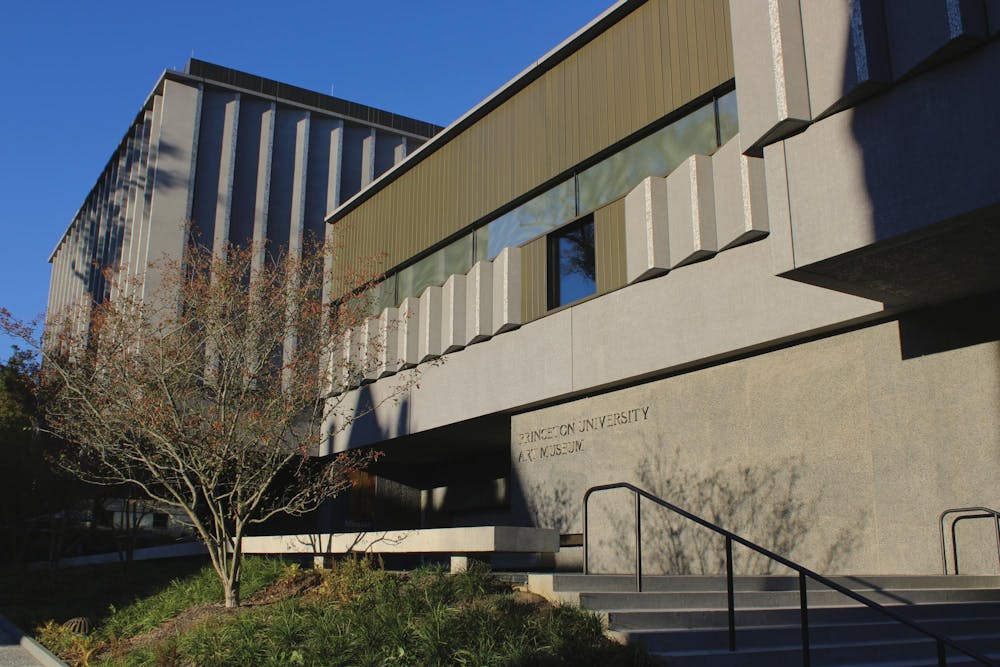The days until the Princeton Art Museum opens are ticking by, but you don’t have to wait until Oct. 31 to enjoy the art the museum has to offer. From subtly thought-provoking steel sculptures to vibrant shards of color in stained glass, the area just outside the Princeton Art Museum has a few works of art to appreciate before the museum opens.
(Any) Body Oddly Propped

(Any) Body Oddly Propped sits outside Princeton University Art Museum
Amy Jeon / The Daily Princetonian
Assembled in 2015 by brothers Doug and Mike Starn, “(Any) Body Oddly Propped” consists of six dyed glass and steel frames, along with two bronze-cast branches. The glass, dyed through techniques pioneered in Germany that apply pigments to the surface of textured antique glass, lends the work a vivacious quality, as branch-like silhouettes weave through the planes. The two artists’ works are often centered around the aesthetic explorations of tree branches and root forms.
On sunny days, the colorful, otherworldly glow that spills through the stained glass gives the artwork an ethereality; the heavy glass structure feeling almost weightless — despite being physically rooted in the ground by two bronze branches.
Untitled (Dango 13-11-27)

Untitled (Dango 13-11-27) outside of the Art Museum
Amy Jeon / The Daily Princetonian
“Untitled (Dango 13-11-27),” created in 2013, is one of artist Jun Kaneko’s many works in his series of “dangos,” named after the eponymous Japanese dumpling. Kaneko’s series, however, consist of large, rounded, and ceramic monoliths. Each dango is colored and glazed distinctly, each variation guided by Kaneko’s intuitive discourse with his own work.

“I walk around the studio and try to make conversation with works I’ve made,” Kaneko explains on the work’s plaque. “When I can hear what a form has to say, I start seeing colors and marks on the surface.”
In this dango, stripes are interwoven intricately across the entire stone. His application of the ceramic glaze is intuitive as well, applied with a Japanese brush in certain patterns and gestures that add character to each work. Kaneko’s dangos are a playful display of both Japanese culture and magical artistic intuition.
Easy Rider

Richard Serra’s "Easy Rider”
Amy Jeon / Daily Princetonian

Inspired by artist Richard Serra’s lifelong work with Bethlehem Steel and its 1969 namesake film, “Easy Rider,” made in 2002, is formed of two adjoined L-shaped steel pieces. As viewers circle the work, the shift in form and angle creates tension between the physical piece and the viewer’s visual perception. While the medium steel evokes a sense of strength and fortitude, the form itself exudes relaxation, mirroring the posture of the hippie protagonists in the film on their motorbikes. The work creates several juxtapositions between solidity and relaxation, light and dark, and simplicity and complexity.
While campus excitedly waits to view the thousands of works inside the Princeton Art Museum this week, these intricate pieces demonstrate that even a short stroll outside the museum can whet one’s appetite for art.
Amy Jeon is a contributing writer for The Prospect and a member of the Class of 2029. She can be reached at aj9410[at]princeton.edu.
Please send any corrections to corrections@dailyprincetonian.com.








